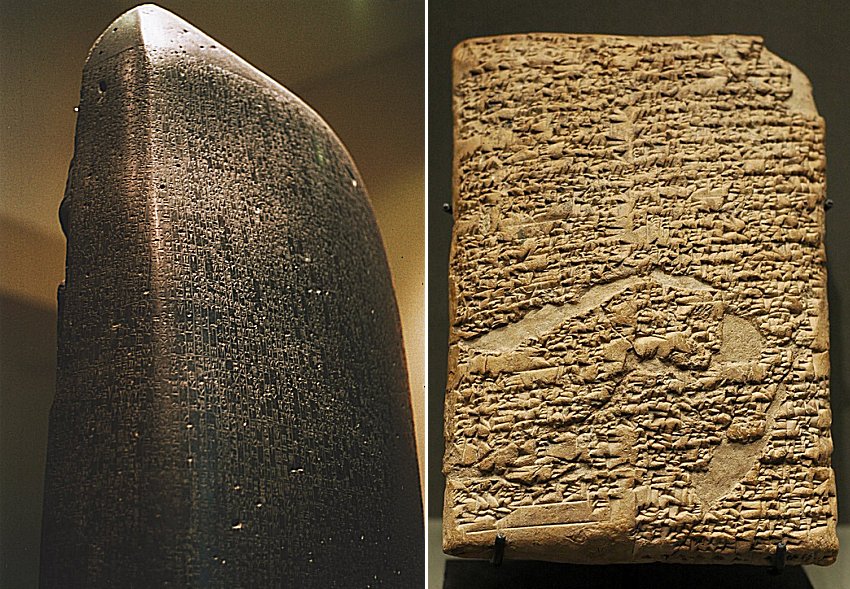A. Sutherland – MessageToEagle.com – One of the earliest and most complete ancient legal codes was proclaimed by the Babylonian king Hammurabi, who reigned from 1792 to 1750 BC.
Hammurabi expanded the city-state of Babylon along the Euphrates River to unite all of southern Mesopotamia. His code – proclaimed at the end of Hammurabi’s reign and supporting the doctrine of ‘an eye for an eye’ – is a collection of 282 laws and standards, indispensable rules for commercial interactions and punishments to meet the requirements of justice.
The black stone stela containing Hammurabi’s Code was carved from a single, four-ton slab of diorite, a durable but incredibly difficult stone for carving.
At its top is a two-and-a-half-foot relief carving of a standing Hammurabi receiving the law— symbolized by a measuring rod and tape—from the seated Shamash, the Babylonian god of justice.
The rest of the seven-foot-five-inch monument is covered with columns of chiseled cuneiform script.
Hammurabi’s Code was looted by later invaders and rediscovered in 1901 by a French archaeological team in present-day Iran.
The code’s 282 edicts – ranging from family law to professional contracts and administrative law – are all written in ‘if-then’ form. The edicts outline different standards of justice for the three classes of Babylonian society – the propertied class, freedmen, and slaves. A doctor’s fee for curing a severe wound would be 10 silver shekels for a gentleman, 5 shekels for a freedman and two shekels for a slave.
Penalties for malpractice followed the same scheme: a doctor who killed a rich patient would have his hands cut off, while only financial restitution was required if the victim was a slave.
Written by – A. Sutherland – MessageToeagle.com Senior Staff Writer
Copyright © MessageToeagle.com All rights reserved. This material may not be published, broadcast, rewritten or redistributed in whole or part without the express written permission of MessageToeagle.com








